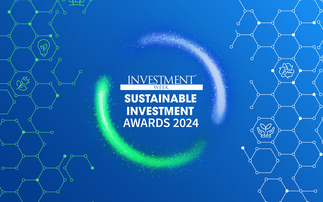The UN-backed Race to Zero has bolstered the minimum criteria that non-state actors must meet to be accredited by the climate campaign amid growing criticism from some campaigners that corporate net zero pledges are not ambitous enough to ensure global temperature rises are limited to 1.5C.
The new rules, which will come into force on 1 June, include a stronger emphasis on the need for businesses, investors, cities, regions, and universities to implement clear interim targets that trigger immediate decarbonisation efforts.
The campaign has also tightened the language it uses when defining residual emissions, sources and credits in its criteria document in an attempt to provide more specificity about what types of carbon sink projects can legitimately be included in net zero strategies.
Banks and asset managers join forces to launch global finance plan to tackle climate change
The new rules come as net zero commitments across the private sector face growing pushback from some campaigners and scientists who claim the long-term targets provide a cover for firms to continue polluting in the short term and that commitments are overly reliant on dubious assumptions about the viability and scalability of negative emissions projects.
A widely shared article last week by the University of Exeter's James Dyke, the University of East Anglia's Robert Watson, and Lund University's Wolfgang Knorr condemned the "fantasy of net zero" and concluded that "current net zero policies will not keep warming to within 1.5C because they were never intended to".
The article was shared by Greta Thunberg, who hailed it as "one of the most important and informative texts I have ever read on the climate and ecological crises".
'Offsetting' removed
The update to the Race to Zero's criteria is the result of a three-month review facilitated by University of Oxford. In a statement, the campaign emphasised the criteria update was part of an "ongoing process" with the climate action community, noting "the concept of net zero is complex and the science and best practices are developing fast".
Dr Thomas Hale, chair of the Expert Peer Review group and associate professor in global public policy at Blavatnik School of Government, said the criteria had been designed to promote learning and 'upward convergence' among members.
"The criteria help catalyse actors to come up to the frontier of best practices, to identify common challenges and questions, and to help advance that frontier going forward," he said.
"It's important to continue developing what needs to happen to accelerate our transition towards a decarbonised economy, whilst also championing these robust efforts already underway."
Key changes to the criteria include a stronger emphasis for actors to explicitly outline how they will contribute towards or beyond their fair share of halving emissions by 2030 and requirements for them to include all scopes of emissions in targets.
Moreover, the term 'offsetting' has been removed from the Race to Zero's criteria document altogether and replaced with 'sinks and credits', with the description of the types of abatement measures accepted by the campaign lengthened to provide more details on what types of projects qualify.













